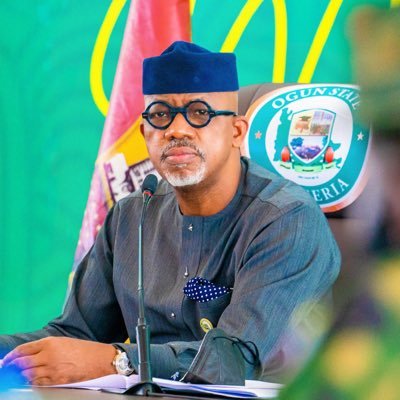In Abeokuta, a story of growth isn’t just a line on a chart—it’s a daily rhythm heard in the hum of traffic, the bustle around Olumo Rock, and the chatter of hopeful entrepreneurs who see opportunity in every corner of Ogun State.
Governor Dapo Abiodun, a man who carries the state’s ambitions in his hands, shared a striking number that became the day’s headline in a more human way. It’s a figure that feels almost like a state’s collective breath held for years, now exhaled in relief and possibility.
The revelation came during a courtesy visit from Mac Group’s Fayad Fayad (Strategic Advisor) and Hassan Fayad (Public Relations and Communication Officer). The two visitors spoke with the governor in his Oke-Mosan office, but the conversation quickly translated into a broader story of shared vision and investment that could touch schools, markets, and family budgets across the state.
One tangible sign of that vision is Olumo Rock, Ogun State’s iconic tourist centerpiece. After its renovation, the site has become more than a landmark; it’s a living example of how well-maintained attractions can support livelihoods. Governor Abiodun noted that Olumo Rock now generates about N20 million each week—an eye-opening leap from the pre-renovation era. For families who run guesthouses, local guides, and small eateries nearby, that revenue translates into extra meals, school fees, and small dreams kept alive.
“I don’t have any doubt about the competitive advantage of this state,” the governor asserted, pointing to the ingredients that make Ogun an inviting place for business and leisure alike: a conducive environment, a wide expanse of land, solid infrastructure, and a skilled workforce. The message was clear to the Mac Group representatives: when communities are supported, investment follows—and so do the improvements that touch everyday lives.
READ ALSO: FLOOD: Erect camping sites in high rise areas — MURIC
Fayad Fayad, speaking on behalf of Mac Group, framed the mission in terms that resonate with many Nigerians: a proposed investment of between $1.8 billion and $2.5 billion, with a focus on hospitality and entertainment. Beyond the numbers, he floated a bold dream—an Africa’s first Disneyland-style resort within Ogun State. It’s a concept that could turn weekend getaways into longer stays, employ hundreds, and create a ripple effect across hotels, eateries, and local businesses.
“We are very happy to be here today in Ogun State; we are very proud to initiate this project,” Fayad said, outlining a plan that includes parks, water attractions, and hotels. He spoke of partnership and shared growth, with a note of optimism that feels personal: “There is a Disneyland resort within Ogun State; it will be the first in Africa.”
For residents who’ve watched years of careful planning and gradual improvements, the exchange between governor and investor felt less like a formal briefing and more like a door opening. It’s the kind of moment that invites neighbours, shopkeepers, teachers, and workers to imagine futures where the next market day brings more buyers, the next tourist season brings more visitors, and the next school term brings more opportunities.
As Ogun State leans into this momentum, the human story remains central: better infrastructure, thriving tourist sites, and a stronger economy aren’t abstract numbers—they’re potential in every classroom, every home, and every small business that dreams a little bigger because the landscape around them has grown more hopeful.
If this collaboration unfolds as hoped, the coming years could redefine how Ogun residents experience work, leisure, and community—turning investment into shared prosperity and turning Olumo Rock’s renewed silhouette into a daily reminder that growth, when rooted in people, can lift a whole region.

